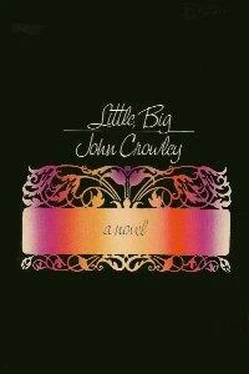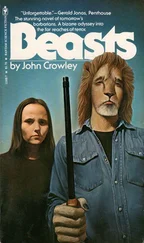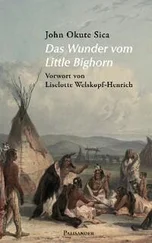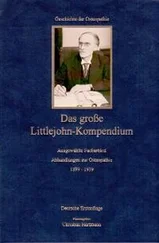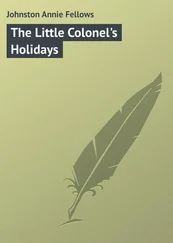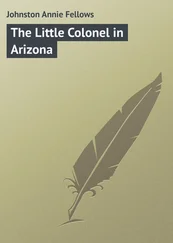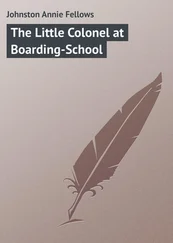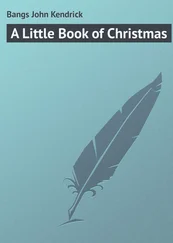He put his hand on the wheel’s black case, feeling it tick over far more steadily than his own heart; and more patient too, and a hardier thing altogether. He pushed open the round window, letting in a glad rush of birdsong, and looked out over the tiled roofs. Another nice day. What is so rare. You could see a long way south from this height, he noticed; you could see the steeple at Meadowbrook, the roofs of Plainfield. Amid them the greening clumps of woods were misty; beyond the towns the woods thickened into the great Wild Wood on whose edge Edgewood stood, which went on growing always deeper and thicker toward the South far farther than the eye could see.
They came to the heart of the forest, but it was a deserted kingdom. They had come no closer to any Parliament, or any closer either to her whom Auberon sought, whose name he had forgotten.
“How far can you go into the woods?” Fred asked.
Auberon knew the answer to that. “Halfway,” he said. “Then you start coming back out again.”
“Not this woods though,” Fred said. His steps had slowed; he plucked up moss and wormy earth with every footstep. He put his feet down.
“Which way?” Auberon said. But from here all ways were one.
He had seen her: he had seen her more than once: had seen her far off, moving brightly amid the forest’s dark dangers, seeming at home there; once standing alone pensive in the tigery shade (he was sure, almost sure, it had been she), once hurrying away, a crowd of small beings at her feet, she hadn’t turned to see him though one of those with her had, sharp ears, yellow eyes, a beast’s unmeaning smile. Always she seemed to be headed elsewhere, purposefully; and when he followed she wasn’t where he went.
He would have called to her, if he hadn’t been unable to remember her name. He had sorted through the alphabet to jog his memory, but it had turned to wet leaves, to staghorn, snails’ shells, fauns’ feet; it all seemed to spell her, but gave him no name. And then she had escaped, not having noticed him, and he was only deeper in than before.
Now he was at the center, and she wasn’t there either, whatever her name was.
Brown breasts? Brown something. Laurel, or cobweb, something like that; bramble, or something that began with a bee, or a sea.
“Annaway,” Fred said. “This looks like as far as I go.” His poncho was stiff and tattered, his pant-legs all fray; his toes protruded from the mouths of his ruined galoshes. He tried to raise one foot from the ground, but it wouldn’t rise. His toes gripped earth.
“Wait,” said Auberon.
“No help for it,” Fred said. “Nest of robins in my hair. Nice. Okay.”
“But come on,” Auberon said. “I can’t go on without you.”
“Oh, I’m comin’,” said Fred, budding. “Still comin’, still guidin’. Oney not walkin’.” Between his great rooting toes a crowd of brown mushrooms had sprung up. Auberon looked up, up, up at him. His knuckles doubled, tripled, turned to hundreds. “Hey m’man,” he said. “Lookin’ at God all day, yunnastan. Gots to catch some rays, scuse me,” and his face tilted back disappearing into bole as he reached up toward the treetops with a thousand greening fingers. Auberon gripped his trunk.
“No,” he said. “Damn it now, don’t.”
He sat down, helpless, at Fred’s foot. Now he was lost for sure. What stupid, stupid madness of desire had propelled him here, here where she was not, this princedom of nobody’s where she had never been, where he was unable to remember anything of her but his desire for her. He put his head in his hands, despairing.
“Hey,” said the tree, with a woody voice. “Hey, what’s that about. I got counsel. Listen up.”
Auberon raised his head.
“Oney the brave,” said Fred, “jes’ oney the brave deserve the fair.”
Auberon stood. Tears made rivulets in his dirty cheeks. “All right,” he said. He ran his hands through his hair, combing out dead leaves. He too had grown rank, as though he had lived years in the woods, mould in his cuffs, berry-juice in his beard, caterpillars in his pockets. A derelict.
He would have to start all over again, that’s all. Brave he was not, but he had arts. Had he learned nothing at all? He must get a grip on this, he must get power over this. If this were a deserted princedom, then he could install himself in its seat, if he could think how, and then he would be lost no more. How?
Only by reason. He must think . He must make order here where there was none. He must get bearings, make a list, number everything and arrange it all in ranks and orders. He must, first of all, erect in the heart of the forest a place where he knew where he was, and what was what; then he might remember who he was, he who was here at the seat and center; and then what he should do here thereupon. He would, Somehow, have to turn back and start again.
He looked around the place he was, trying to think which of the ways away from it would lead him back.
All would, or none would. Warily he peered down leafy flowered avenues. Whatever way looked most like leading him away would only turn in some subtle way and lead him back, he knew that much. There was an expectant, an ironic silence in the woods, a few brief questions from the birds.
He took a seat on a fallen log. Before him, in the center of the glade, amid the grasses and violets, he set up a little stone shed or pavilion, facing in four directions, north, south, east and west. On each of its faces he put a season: winter, summer, spring and fall. Radiating away from it were the curving, tricksome ways; he metalled them in gravel, and bordered them with white-painted stones, and led them toward or awsy from statues, an obelisk, a martenhouse on a pole, a little arched bridge, beds of tulips and day-lilies. Around it all he drew a great square of wrought-iron fence studded with arrow-headed posts, and four locked gates to go in and out of.
There. Traffic could be heard, though far off. Carefully he shifted his look: there beyond the fence was a classical courthouse, surmounted with statues of lawgivers. A hint of acrid smoke mixed in his nostrils with spring air. Now he needed only to go around the place he had made, to each of its parts in strict order, and demand from each the part of Sylvie he had put there.
The part of whom?
The park trembled in unreality, but he put it back. Don’t grasp, don’t hurry. The first place first, then the second place. If he didn’t do this properly, he would never find out how the story came out: whether he found her, and brought her back (back where?) or lost her for good, or whatever the end was, or would be, or had been. He began again: the first place, then the second place.
No, it was hopeless. How could he ever have thought to have contained her in this place, like a princess in a tower? She had fled, she had arts of her own. And what anyway did his ragbag of memories amount to? Her? No way. They had grown over time even more crushed, faded and tattered than he remembered them being when he had put them here. It was no use. He rose from his park bench, feeling in his pocket for the key that would let him out. The little girls who played jacks along the path looked up at him warily as he chose a gate to go out of.
Locks. That’s all this damn City is, he thought, inserting his key; locks upon locks. Rows, clusters, bouquets of locks knotted against the edges of doors, and the pocket weighed down as with sin by keys, to open them and lock them up again. He pushed open the heavy gate, swinging it aside like a jail door. On the rusticated red stone gatepost was a plaque: it said Mouse Drinkwater Stone 1900. And from the gate the street stretched out, townhouse-lined for a block, then marching into the brown uptown distance between vague castles, old in power, that scraped the sky, wreathed in smoke and noise.
Читать дальше
